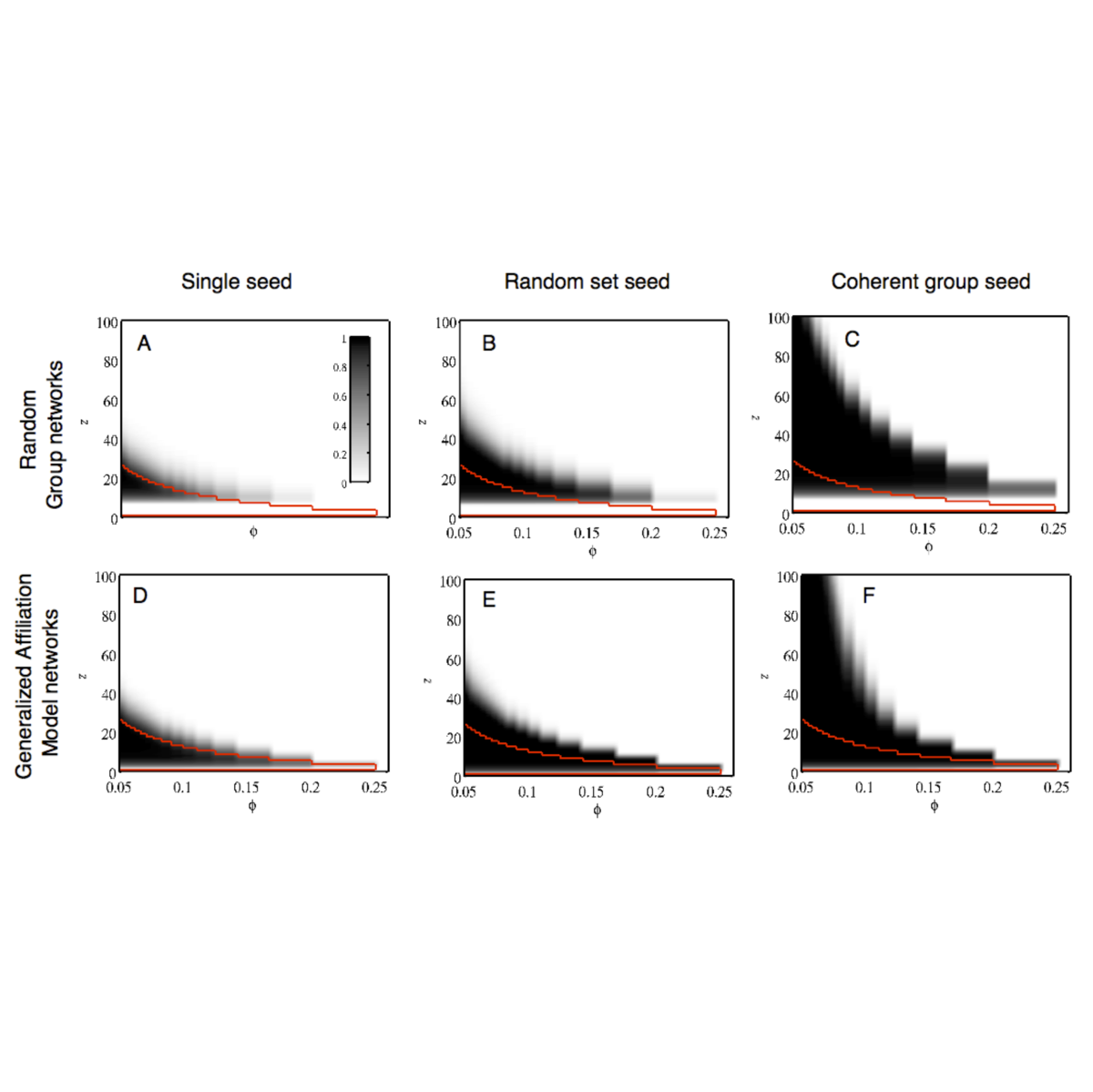Threshold models of social influence
D. J. Watts and P. S. Dodds
In The Oxford Handbook of Analytical Sociology, Chapter 20, 475–497, 2009

Times cited: 19
Abstract:
Individuals are influenced by the decisions, actions, and advice of others when making a wide variety of decisions, both consciously and unconsciously. Understanding how and when this "social influence" arises, and how individual decisions aggregate in the presence of such influence should therefore be considered central components in any theory of collective social behavior. Here we discuss briefly the multifarious nature of social influence, before reviewing some recent work that explicitly derives simple heuristics for binary decisions in the presence of social influence. We then explore the consequences of a particular class of heuristics—threshold rules—for collective decision making processes. In particular, we show in detail how the properties of the corresponding influence network—that is, the network of "who influences whom"—can impact the dynamics of collective decisions, determining, for example, the likelihood that large "cascades" of influence can originate from small initial seeds, the ability of prominent individuals to trigger such cascades, and the importance of group structure in triggering and propagating large cascades.
- This is the default HTML.
- You can replace it with your own.
- Include your own code without the HTML, Head, or Body tags.
BibTeX:
@incollection{watts2009a,
author = {Watts, Duncan J. and Dodds, Peter S.},
title = {Threshold Models of Social Influence},
booktitle = {The Oxford Handbook of Analytical Sociology},
key = {contagion},
pages = {475–497},
publisher = {Oxford University Press},
year = {2009},
editor = {Hedstr\"{o}m, Peter and Bearman, Peter},
chapter = {20},
address = {Oxford, UK},
asin = {0199215367},
}